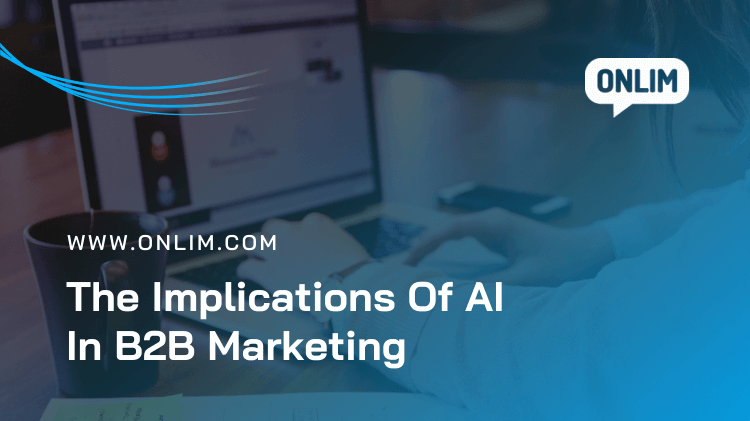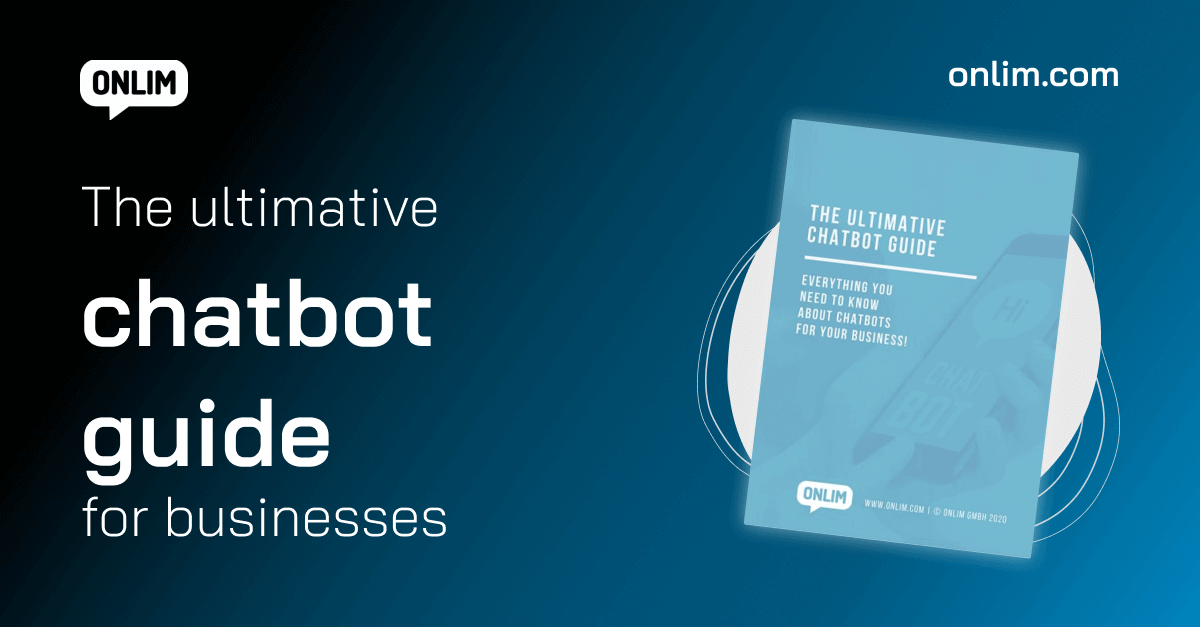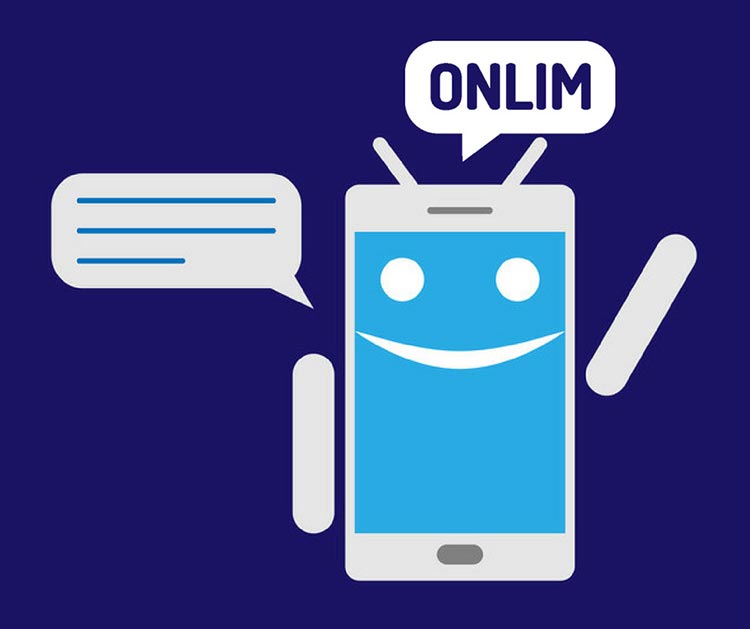The Implications Of AI In B2B Marketing
Guest post by Manuel Fornillos.
Just hearing the words artificial intelligence (AI) still intimidates a lot of people. But if you think about it, AI is already deeply integrated into our everyday lives. We see and use artificial intelligence more than we think.
Each time we enter queries on Google’s search bar, we leverage the brilliant technology. Its humble beginnings are far from what it is now. From merely responding with simple greetings, AI is now capable of processing a huge amount of information at once — and that’s only the start.
Today, AI dominates the technological sphere as it is applied in gaming, healthcare, finance, and of course, marketing.
Also relevant: Artificial Intelligence vs. Machine Learning vs. NL
Business to customer (B2C) ventures have benefited greatly from AI. Providing customer service, collecting information, and analyzing trends have never been easier.
There is a lot of talk on how B2Cs can take advantage of the technology for growth and expansion. Hundreds of articles online urge business owners to take the leap and invest in the technology for the benefit of their brand and customers. But what about business-to-business marketing?
Believe it or not, AI has a lot to offer to B2B marketers. In fact, 71% of B2B marketers consider AI for personalization as a major interest, while 59% believe AI will be crucial to identifying potential customers. By this time, you should already have a gameplan on how to adopt emerging trends into your strategy.
If you’re a little fuzzy in this area, keep reading to find out more. In this article, we discuss how AI is transforming the landscape of B2B marketing, and the pros and cons that come with it.
How AI is Transforming B2B Marketing
There’s no question that AI is an empowering piece of technology. Situated in a highly dynamic environment such as that in marketing, AI has proven itself as a worthy tool for engaging clients and running business analytics.
Diving deeper, we can see that AI is causing major paradigm shifts in B2B marketing by:
1. Attracting Quality Leads
By capturing and processing large sets of data at a time, B2B marketers can say goodbye to manually going through profiles one-by-one. AI is applied in this respect in numerous ways.
For one, you can integrate AI directly on your website or social media pages. From there you can have it control your forms and other data collection processes. Following set parameters, it can automatically gather and organize relevant data points that will help you identify quality leads.
This will make your pursuit of future clients more targeted, thus more effective.
Some AI technology is designed specifically to scour the global network for potential clients based on customizable specifications. In doing so, it makes the use of resources efficiently and frees up your time to attend to higher-level functions applications.
By the way, if you’d like to learn more about chatbots for your business – check out our guide.
2. Automating the Account Selection Process
Every sales personnel can tell you how long it takes to woo a prospect. Nurturing the relationship between your brand and a lead takes time and a significant amount of resources. Especially if your business isn’t as established.
AI steps in to automate a lot of the repetitive tasks needed to close a deal. Crafting emails and sending out responses are some of the ways the technology can save company resources. You can take advantage of this by embedding AI into your CRM database and configuring it to carry out said functions.
You can also have AI create client lists, organize accounts, and seek out new clients based on predefined attributes.
Salesforce Automation Software is a favorite tool in the field. It tracks client information, generates reports, and connects you to quality leads all in one dashboard.
3. Personalizing Customer Experiences
Personalization is a highly-revered pillar of a successful marketing campaign. In B2C marketing, a lot of thought goes into matching customer preferences to user experience. The same should be done in B2B marketing.
AI allows the hyper-personalization of client interactions. From the data it has collected, the technology can help you craft targeted emails that read better and prompts that push leads further down the sales funnel. And by helping you come up with elements like better subject lines and better recommendations using customer data, your emails allow you to foster better relationships and improve email open rates.
Sophisticated AI can even use its repository of data to determine the most optimal times of sending out these emails to get the desired response.
When embedded into your website, AI directs visitors to the most appropriate landing page, suggests products or services, and answers frequently asked questions via a chatbot, for example. All these make for a seamless journey through the funnel from start to finish.
4. Refining SEO Strategies
While there are already a lot of SEO tools available, many of them require a lot of manual inputs and analysis. Again, AI revolutionizes the field by automating, therefore simplifying SEO efforts for the whole team.
Identifying keywords, monitoring backlinks, analyzing market trends, and looking into competitor insights are all done efficiently using AI. Wired with machine learning, AI interprets and processes data patterns more quickly and accurately with each render.
In the future, AI can become so powerful that you can get all the information you need by just feeding the system a couple of data points and pushing a button. Some advanced AI products are already on this level. In time, even small business owners can have access to this game-changing technology.
5. Pushing for Novel Shopping Experiences
Online shopping experiences have grown tremendously with the advent of smart gadgets and the internet. People have grown to be more trusting of online shops because companies now have the power to showcase their offerings well in a virtual environment.
Although there have been a lot of developments in this area, a lot must be improved in making online shopping accessible for all. Customers with visual impairments and special needs don’t get to interact with brands normally, challenging marketers to be innovative in communicating their message.
The introduction of AI and voice commands presented a great workaround for these problems. Devices with this kind of AI technology use speech recognition and natural language processing to pick up on user requests and queries.
Rolling this out to the masses was a success. However, it still has a long way to go before everything is streamlined and incorporated into all businesses. Based on its trajectory, it’s likely that voice command will take over searches in the coming years which will force marketers to go back to the drawing board and design novel strategies to match.
For now, it’s merely a waiting game to see what happens next, but be sure to be on the lookout for new developments.
The Pros and Cons of AI
It’s obvious that AI has a lot to bring to the table. The technology affords superb data analytics and management, continuous customer support, and marketing automation among others. These translate into better customer experiences, higher profit margins, and more business.
Machines don’t get tired so you have all these benefits continuously so long as you keep your system updated and in good condition.
However, AI does come with a few cons. Applying AI into your business can come with a heavy price tag, especially if you’re after advanced products. They are also restricted by their code so making them jump from one environment to the next may not be as efficient as you’d like.
Conclusion
AI technology will only get more advanced as time progresses. With its current capabilities, it’s already sending shockwaves through the B2B system, keeping everyone on their toes on what to do next.
Even if your business can’t benefit from AI technology now for whatever reason, it’s best to stay in-the-know to remain competitive and finally leverage the technology when the time is right. Our advice, though, the sooner you get on the wagon, the better.
AI technology has become integral to B2C companies while seeing significantly slower adoption in the B2B industry. This article is designed to show how AI can positively impact B2B companies.
Author bio:
Manuel Fornillos is Chief Content Officer of Startup Credo. His writing proficiency covers topics about social media, digital marketing, technology, and mobile applications.
What are Large Language Models (LLMs)?
March 18th, 2024|
What are chatbots and how do they work?
November 23rd, 2023|
The AI Act and its impact on the use of chatbots
October 27th, 2023|




